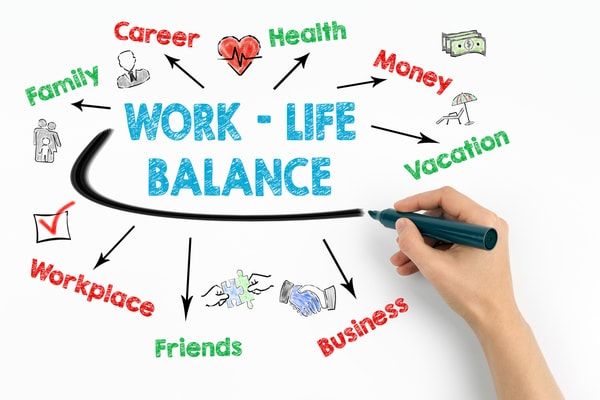
Key Factors in Maintaining a Healthy Work-Life Balance
Modern life comes with numerous responsibilities and challenges, making it increasingly difficult to maintain a healthy work-life balance. Juggling between work, family, personal commitments, and social life can often become overwhelming and take a toll on our mental and physical health. However, by understanding the key factors that contribute to a balanced lifestyle, we can ensure that we lead a fulfilling and harmonious life.
Set Clear Boundaries
One of the primary factors in maintaining a healthy work-life balance is setting clear boundaries between work and personal life. It is crucial to establish specific working hours and stick to them religiously. This means avoiding checking work emails or answering phone calls outside of these designated hours, thus allowing yourself time to unwind and recharge.
Delegate and Prioritize
Effective delegation and prioritization of tasks are essential in managing your workload and preventing burnout. Learn to identify tasks that require your attention and those that can be delegated to others. Delegating responsibilities not only lightens your workload but also promotes trust and teamwork within your professional environment. Prioritizing tasks based on their urgency and importance helps you stay focused and organized, ensuring you tackle the most critical assignments first.
Practice Effective Time Management
Poor time management often leads to overwhelming workloads and a skewed work-life balance. Utilize time management techniques such as creating a to-do list, breaking tasks into smaller, manageable chunks, and using time-tracking apps or calendars to keep track of deadlines and appointments. By managing your time effectively, you can ensure you have enough time for work, personal commitments, and relaxation.
Nurture Relationships
Building and maintaining strong relationships with your family, friends, and colleagues is paramount to achieving a healthy work-life balance. Allocate dedicated time for your loved ones and engage in activities that nourish those relationships. Moreover, strive to foster positive relationships with your colleagues, creating a supportive and harmonious work environment.
Don’t Neglect Self-Care
Self-care is often left off the priority list, but it plays a vital role in maintaining a healthy work-life balance. Take care of your physical and mental well-being by incorporating activities such as regular exercise, proper nutrition, sufficient sleep, and relaxation techniques into your routine. Remember, you cannot pour from an empty cup, so taking care of yourself is crucial before you can give your best to others.
Learn to Say No
Many of us struggle with saying no, whether it be to taking on additional work projects or social obligations. Learning to say no is essential in setting boundaries and prioritizing your time and energy. Assess your workload and commitments realistically, and do not hesitate to decline requests when your plate is already full. It may be challenging at first, but saying no empowers you to focus on what truly matters.
Create Work-Life Integration
Lastly, aim to integrate work and personal life in a way that allows for flexibility and harmony. Seek opportunities to combine elements of both aspects, such as attending work-related events with your partner or engaging in personal activities during work breaks. By blending work and personal life, you can achieve a greater sense of balance and fulfillment.
In conclusion, maintaining a healthy work-life balance requires conscious effort and prioritization. By setting clear boundaries, practicing effective time management, nurturing relationships, prioritizing self-care, and learning to say no, you can ensure a well-rounded and fulfilling lifestyle. Achieving work-life integration will allow you to excel both professionally and personally, optimizing your overall well-being.

